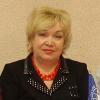VINOKUROVA N., LOSHCHILOVA A. TRANSDISCIPLINARY POTENTIAL OF THE CULTURAL LANDSCAPE AND ITS IMPLEMENTATION IN THE ENVIRONMENTAL EDUCATION OF FUTURE TEACHERS. LIFELONG EDUCATION: The 21st Century.
2022. № 2 (38).
DOI: 10.15393/j5.art.2022.7624
| Issue 2 (38) |
Lifelong learning in the modern world: the research and design methodology |
|
TRANSDISCIPLINARY POTENTIAL OF THE CULTURAL LANDSCAPE AND ITS IMPLEMENTATION IN THE ENVIRONMENTAL EDUCATION OF FUTURE TEACHERS
 | | VINOKUROVA Natalya F.
Doctor of pedagogical sciences, Professor
Minin Nizhny Novgorod State Pedagogical University
(Nizhny Novgorod, Russian Federation)
eco@bk.ru |
 | | LOSHCHILOVA Anna A.
PhD in Pedagogical Sciences, Associate Professor of the Department of General and Social Pedagogy
Minin Nizhny Novgorod State Pedagogical University
(Nizhny Novgorod, Russian Federation)
annet_787@mail.ru |
Keywords:
transdisciplinary potential
transdisciplinarity
environmental education
cultural landscape
co-evolution
future teacher. |
Abstract: environmental education in the current conditions of the aggravated environmental situation is considered as a strategic priority of modern society and the most important condition for national security. The key link in solving this problem is the teacher. It is the environmental training and education of the teacher that determines the appearance of an environmentally-oriented person of the future. These provisions update the research topic. At the same time, the training of a teacher within the framework of the existing subject-centric model does not allow one to fully form an un-derstanding of the unity and self-worth of a person and the socio-natural environment surrounding him. In this regard, of particular importance in environmental education is the appeal to the objects of the real socio-natural environment, materializing the ideas of co-creation of man and nature. One of these objects is the cultural landscape, the transdisciplinary potential of which will make it possi-ble to implement the ideas of co-evolution in the environmental education of future teachers. The purpose of the article: to identify and reveal the transdisciplinary potential of the cultural landscape, reflecting the co-creation of man and nature, as well as the possibilities of its implementation in the environmental education of future teachers using the example of a transdisciplinary module.
In the course of the study, the following set of methods was used: structural analysis, synthe-sis, systematization and generalization of scientific literature, design and construction. The compre-hension of the problem was carried out in the context of the ideas and provisions of the transdisci-plinary, co-evolutionary subject-activity, integral, landscape-environment approaches.
Within the framework of the study, the transdisciplinary potential of the cultural landscape is defined and substantiated, which makes it possible to synthesize various «languages» of cultural assimilation of reality, ways of knowing science, art and other areas of spiritual experience. The features and structure of the transdisciplinary cultural and environmental module «Ecological edu-cation in the context of the co-evolutionary educational paradigm», the psychological, pedagogical and methodological foundations of its implementation within the framework of the master's pro-gram are disclosed.
It has been established that the transdisciplinary potential of the cultural landscape makes it possible to realize in the environmental education of future teachers the ideas of co-creation, co-evolution of man and nature as the worldview base of modern environmental education and up-bringing. The identified theoretical provisions were the basis for the development of the author's transdisciplinary cultural environmental module aimed at the environmental education of future teachers.
|
Paper submitted on: 05/07/2022; Accepted on: 06/03/2022; Published online on: 06/26/2022.
Reference
- Vedenin Yu. A. Cultural landscape as a keeper of the historical memory of the earth. In: Regional'nye problemy. 2018. Vol. 21. P. 28–34. (In Russ.)
- Vinokurova N. F. Coevolutionary paradigm of environmental education for sustainable development: methodological foundations. In: Uchenye zapiski Zabajkal'skogo gosudarstvennogo universiteta. 2021. Vol 16. № 4. P. 65–74. (In Russ.)
- Vinokurova N. F., Loschilova A. A. Landscape education of schoolchildren: theory and educational practice. In: Nizhegorodskoe obrazovanie. 2020. № 2. P. 52–58. (In Russ.)
- Grebenshchikova E. G. Transdisciplinary paradigm in bioethics In: Znanie. Ponimanie. Umenie. 2010. № 2. P. 79–83. (In Russ.)
- Karpinskaya R. S., Liseev I. K., Ogurtsov A. P. Philosophy of nature: co-evolutionary strategy. Moscow, 1995. 352 p. (In Russ.)
- Kiyashchenko L. P., Moiseev V. I. Philosophy of transdisciplinarity. Moscow, 2009. 205 p. (In Russ.)
- Knyazeva E. N. Transdisciplinary research strategies In: Vestnik Tomskogo gosudarstvennogo pedagogicheskogo universiteta. 2011. № 10. P. 191‒199. (In Russ.)
- Moiseev N. N. Historical development and environmental education. Moscow, 1995. 53 p. (In Russ.)
- Perminova L. M. Human dimension of methodological foundations in education. In: Otechestvennaya i zarubezhnaya pedagogika. 2012. № 5. P. 76–86. (In Russ.)
- Designing an environmentally-oriented life activity of a student's personality in a cultural landscape: theoretical and methodological discourse. N. Novgorod, 2019. 220 p. (In Russ.)
- Ragulina M. V. Cultural landscape: an integral view. Ulyanovsk, 2015. 147 p. (In Russ.)
- Rodoman B. B. Under the open sky: about humanistic environmental education. Bib-ka «Common Sense». Moscow, 2004. 184 p. (In Russ.)
- Stepin V. S. Types of scientific rationality and synergetic paradigm. In: Slozhnost'. Razum. Postneklassika. 2013. № 4. P. 45‒59. (In Russ.)
- Transdisciplinarity in philosophy and science: approaches, problems, prospects. Moscow, 2015. 564 p. (In Russ.)
- Tyutyunnik Yu. G. Problematic issues of the theory of cultural landscape In: Izvestiya Rossijskoj akademii nauk. Seriya geograficheskaya. 2013. № 4. P. 34–45. (In Russ.)
- Wilber K. Integral psychology: Consciousness, Spirit, Psychology, Therapy. Moscow, 2004. 412 p.
- Shubinsky V. S. Problems of interdisciplinary synthesis of knowledge about a person as a pedagogical goal / New research in pedagogical sciences. Moskow, 2010. P. 7–14. (In Russ.)
- Kiyashchenko L. P. The phenomenon of transdisciplinarity ‒ the experience of philosophical analysis. In: Santalka. philosophy. 2006. T. 14. № 1. P. 17–37.
- Kolesnikova I. A. Transdisciplinary strategy for the study of continuous education [Electronic resource]. In: Nepreryvnoe obrazovanie: XXI vek [Lifelong education: the 21st century]. 2014. Is. 4. Electronic. dan. URL: https://lll21.petrsu.ru/journal/article.php?id=2642doi (date of access: 03.04.2022). (In Russ.)
- Leskova I. A.The idea of education: structure and content in the context of changing philosophical foundations [Electronic resource]. In: Vestnik Mininskogo universiteta. 2021. T. 9. № 3 (36). Electronic. dan. URL: https://vestnik.mininuniver.ru/jour/article/view/1258 (date of access: 04.18.2022). (In Russ.)
- Molchanov V. O. About science, religion, systemic philosophy of Yu. A. Urmantsev, transpersonal psychology of S. Grof and the formation of a new worldview paradigm [Electronic resource]. In: Etiko-filosofskij zhurnal «Graniepohi». 2013. № 53. Electron. dan. URL: http://grani.agni-age.net/articles12/4806.htm (date of access: 04.18.2022). (In Russ.)
- Perevoshchikova E. N. Educational results in the preparation of the future teacher and means of assessing their achievement [Electronic resource]. In: Vestnik Mininskogo universiteta. 2022. Vol. 10. № 1. Electron. dan. URL: https://vestnik.mininuniver.ru/jour/article/view/1325/868 (date of access: 04.18.2022). (In Russ.)
Displays: 1505; Downloads: 377;
DOI:
http://dx.doi.org/10.15393/j5.art.2022.7624













